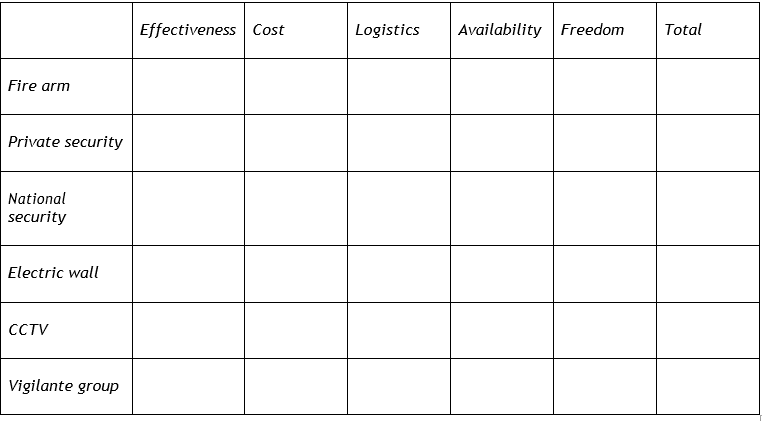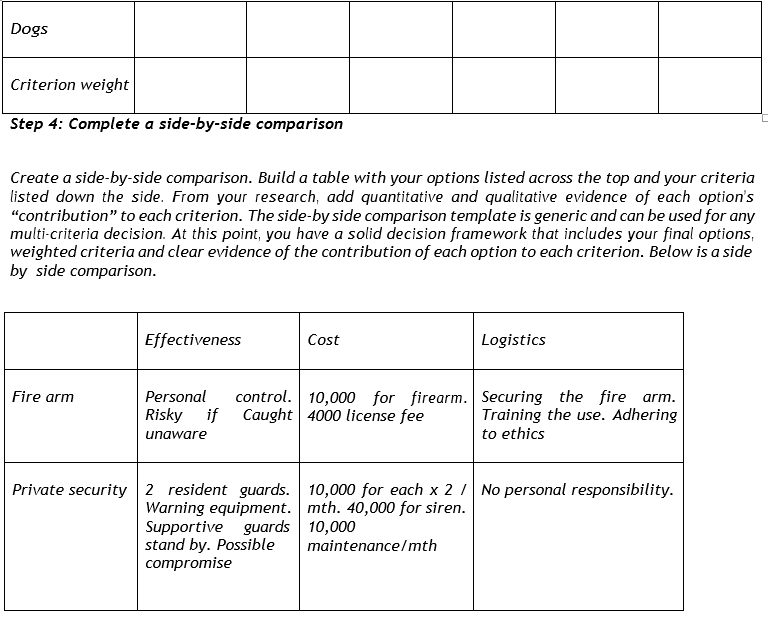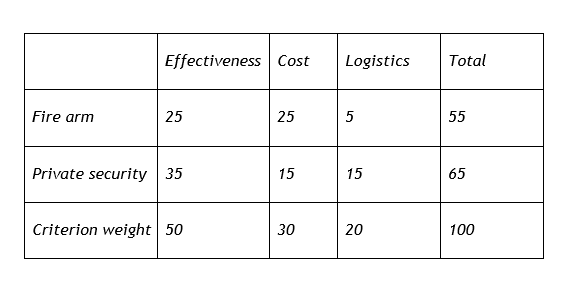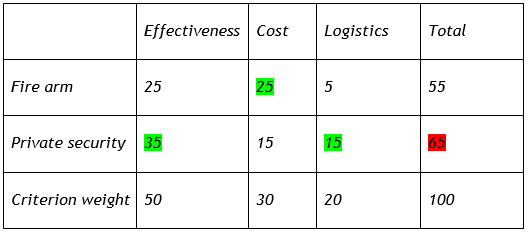The steps are:
Whether planning for national security, computer security, economic security or making some other consequential choice, you need first to become well informed. What do I need to know? What are my requirements? Are the constraints? What are the options? How can I compare those options fairly?
Invest sufficient time or resources in research and consider a wide range of options. Do not rush through the information gathering phase. Do not dwell on preconceived ideas or act emotionally due to your attitudes and biases. Every idea should be based on facts. The more informed the planner is the clearer the option become. Many decisions to be made are multi-criterion.
Step 2: Generate criteria and weigh criteria
Once well-informed, begin to list the criteria. A criterion is a standard, rule, or test on which a judgment or decision can be based. For example, if you are planning for securing your home from theft, the criteria may be cost, ease to manage/logistics, personal freedom, level of effectiveness, availability etc. Consider many criteria and then eliminate them to the critical ones. Define the criteria clearly and simply, using a few words. This helps in knowing explicitly what you want to achieve.
After listing the criteria weigh criteria. Order your criteria in the order of relative importance. Then, assign a weight (between 0 – 100) to each criterion, making sure that the sum of all weights totals 100.


Step 3: Identify and/or create options
Converge on a rich set of options. Always diverge broadly. Avoid “premature closure.” That is, you don’t want to converge on a set of options before you have explored all possibilities; otherwise, you risk leaving an optimal choice off the table.
Once all options are on the table, apply your decision criteria as a “first sort” to filter out suboptimal choices and to begin to converge on the final set of options that will require more intense scrutiny. For example in securing your home you may consider options such as acquiring a fire arm, employing private security guards, hiring national security service personnel, electric perimeter wall, mounting CCTV, organizing vigilante group, rearing dogs etc. Develop a decision matrix. This is a table allowing comparison of options against the criterion. Below is a decision matrix


Step 5: Assess each option against each weighted criterion
Objectively assess each option against each weighted criterion. Assign a reasonable, evidence-based scoring for each cell. The assigned criterion weight should be included at the base. Considering three criterion and two options in securing a home:
While referring closely to your side-by-side comparison, score each option against each criterion in the appropriate cell. Simple creative ways can be devised such as use a 1-9 scale or you can limit your scale to the total number of options (e.g., if you had four options, the scale would be 1-4). The score of each option on a certain criterion should not be beyond the criterion weight.

Step 6: Make your decision
Regarding trade-offs: a trade-off is the giving up of one thing in return for another. Just about every complex decision requires that you accept having less of one thing in order to get more of something else. The beauty of a decision matrix is that you can easily manage the tradeoff analysis because you
can see where the trade- offs are.
You can:
• Compare the total benefit of each option against the set of weighted criteria (pick private security with total benefit of 65)
• Examine the specific trade-offs
(can choose private security for effectiveness and logistics to fore go cost benefit or acquire firearm to fore go effectiveness and logistics)
• Create scenarios by changing the decision criteria weights (if I acquire firearm … and if I engage private security …)

Titany answered the question on
December 7, 2021 at 07:02